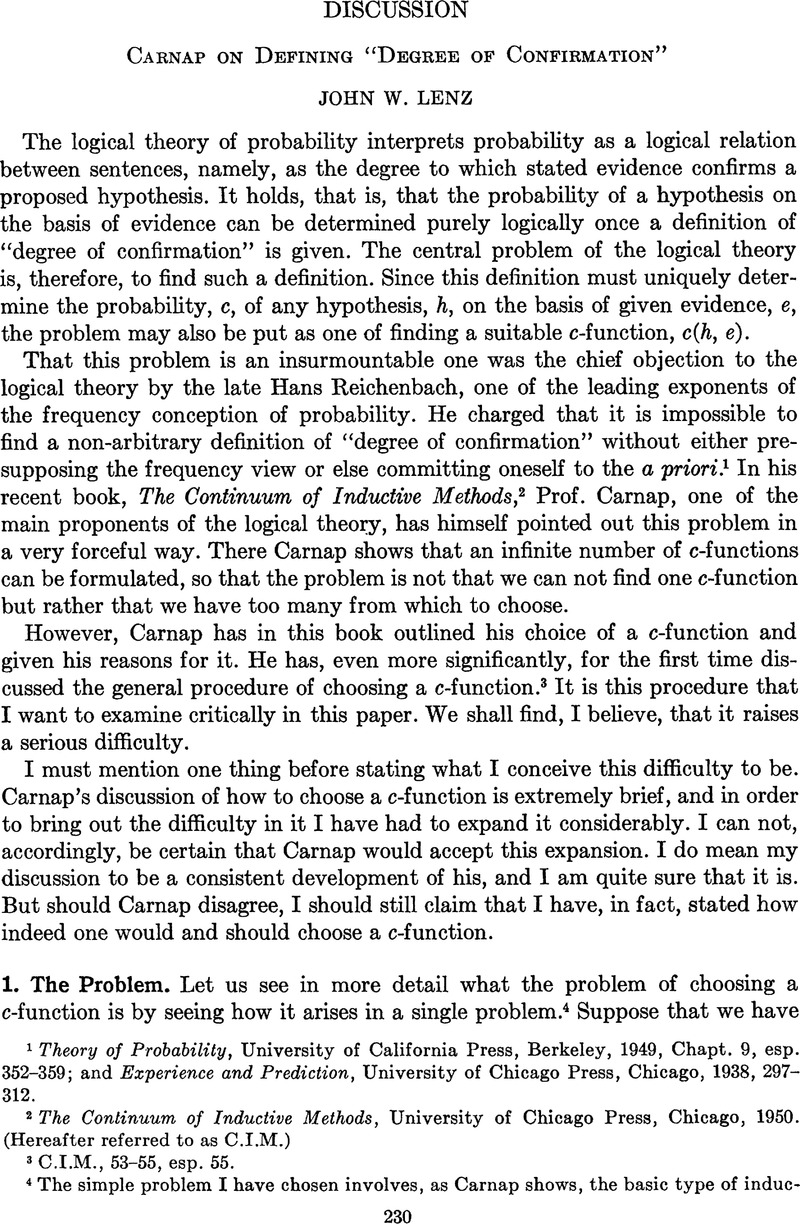Published online by Cambridge University Press: 14 March 2022

1 Theory of Probability, University of California Press, Berkeley, 1949, Chapt. 9, esp. 352–359; and Experience and Prediction, University of Chicago Press, Chicago, 1938, 297–312.
2 The Continuum of Inductive Methods, University of Chicago Press, Chicago, 1950. (Hereafter referred to as C.I.M.)
3 C.I.M., 53–55, esp. 55.
4 The simple problem I have chosen involves, as Carnap shows, the basic type of inductive inference in the logical theory. Thus, we can restrict our discussion to just this type of inference without any loss of generality.
5 C.I.M., 55. “Relevant points of view for his preference might be: performance, economy, and aesthetic satisfaction, and others.”
6 Rudolf Carnap, Logical Foundations of Probability, University of Chicago Press, Chicago, 1960, 246–254. (Hereafter I shall refer to this book as L.F.P.)
7 C.I.M., 55. “Similarly, after working with a particular inductive method for a time, he may not be quite satisfied and therefore look around for another method. He will take into consideration the performance of a method, that is, the values it supplies and their relation to later empirical results, e.g., the truth frequency of predictions and the error of estimates. …”
8 Carnap, I believe, would very likely accept this criticism and thus not choose the first way out. He says, for example, “Questions concerning the success of a given inductive method in the actual world would be of a factual, nonlogical nature. And if they concerned not merely that part of the world which is known to us by past observations but also a part or whole of the future, then the answer could be given with certainty only after all observation reports were in, if that were ever possible. And if our question concerned not the actual success but the probability of success or an estimate of success, then it would make sense only on the basis of a chosen inductive method.” C.I.M., 59–50.
9 [Once a man adopts a method] “he will apply it to all inductive problems, problems of confirmation for all kinds of hypotheses.” C.I.M., 54.
10 L.F.P., 180–181.
11 L.F.P., 177–182.
12 L.F.P., 177–182.